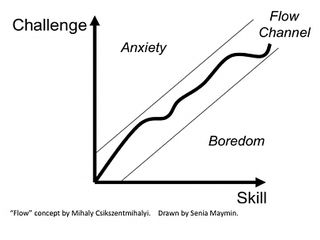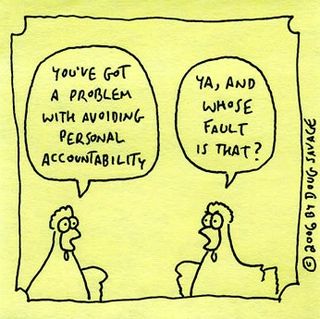In my last blog entry, I discussed the value of not just asking questions…but rather, asking great questions. I qualified the “great questions” as ones that add value, present your knowledge in terms of knowing your candidate, and show your attentiveness. Today, with the help of a blog written by Colin Wilson, I want to give you some general rules of thumb.
Allow for Warm-Up Time
At the beginning of a meeting or interview, take time for chit-chat. Casual banter is not work-related and allows for a more relaxed environment. Chit-chat time is an opportunity to build rapport and will help you gauge a candidate’s communicative style and perspective.
Label the Question
Labeling a question before you ask it positions the question in the respondent's mind. By “labeling,” I mean that you first tell the respondent that you are going to ask them a question on a certain topic, and then you ask the question(s). By giving them notice of the topic, it will give them a split second or two to consider a deeper response. More importantly, by explaining why you are going to ask a certain question(s) you will put the candidate at ease. This strategy is much better than the alternative, which leaves them guessing and uneasy…a situation that could ultimately lead to avoidance.
Example: "To gain a better understanding about your background, I would like to ask you some questions about your prior work history."
General Questions before Specifics
It is important to get an understanding as to why the candidate is sitting in front of you. Why, specifically, are they there? This is important information before you get into specific detail in an interview. There are three steps to this process:
- Ask broad open-ended questions about areas of possible interest. Example: "Tell me about life outside of work…what hobbies or other interests do you have?"
- Determine the priority areas…where do you, as the interviewer, need to direct the interview?
- Ask probing questions about the broad topics that interest the candidate. Example: "How were you introduced to (specific activity)?"
Avoid too many Closed Questions
Asking too many close-ended questions (yes/no questions) will come across as if you are interrogating the respondent. That is not a place most people want to find themselves. If you need to ask a series of yes/no questions, let the candidate know that you are going to do so.
Example: "Next, I'd like to get some basic information from you… Are you financial prepared to start your real estate business? Do you have the time that is necessary to dedicate to getting your license? Does your family support your decision?"
Use the Person’s Name
People enjoy hearing their names. Therefore, use their name throughout the discussion, while taking care not to over use it. Without the use of the person’s name, the interview could come across as being very impersonal, which consequentially does not build rapport.
Avoid Negative Questions
Negative questions may put the respondent on the defensive and become a barrier to building rapport. Such questions may very well make the candidate feel ignorant, incompetent, guilty, wrong, etc… These feelings will most certainly inhibit your efforts to build a relationship with the candidate.
Example: During an interview with an experienced agent, DON'T ask, “Why did you fail to close so few transactions in the last two years?”
Effective Questioning can provide you with the opportunity to help crystallize a candidate’s thinking and will help you build rapport and trust by demonstrating that you understand and value their opinions. Additionally, as you move through an interview, and ask your great questions, you may very well begin to use their language, which is another block in your “relationship building.”
 Editor's Note: Lee Gray is the Senior Account Manager at Tidemark Inc. Lee is a guest contributor to WorkPuzzle. Comments or questions are welcome. If you're an email subscriber, reply to this WorkPuzzle email. If you read the blog directly from the web, you can click the "comments" link below.
Editor's Note: Lee Gray is the Senior Account Manager at Tidemark Inc. Lee is a guest contributor to WorkPuzzle. Comments or questions are welcome. If you're an email subscriber, reply to this WorkPuzzle email. If you read the blog directly from the web, you can click the "comments" link below.











